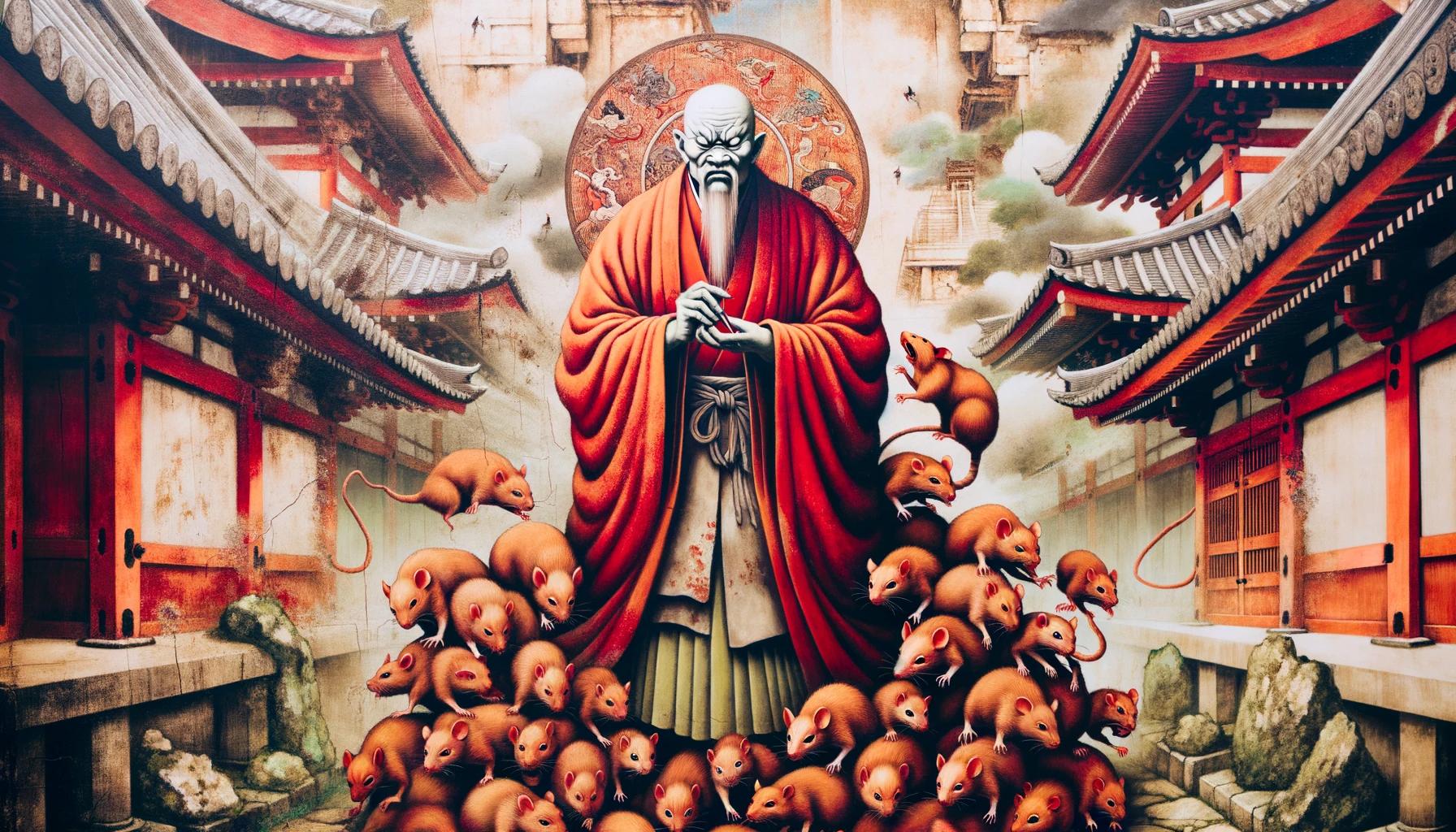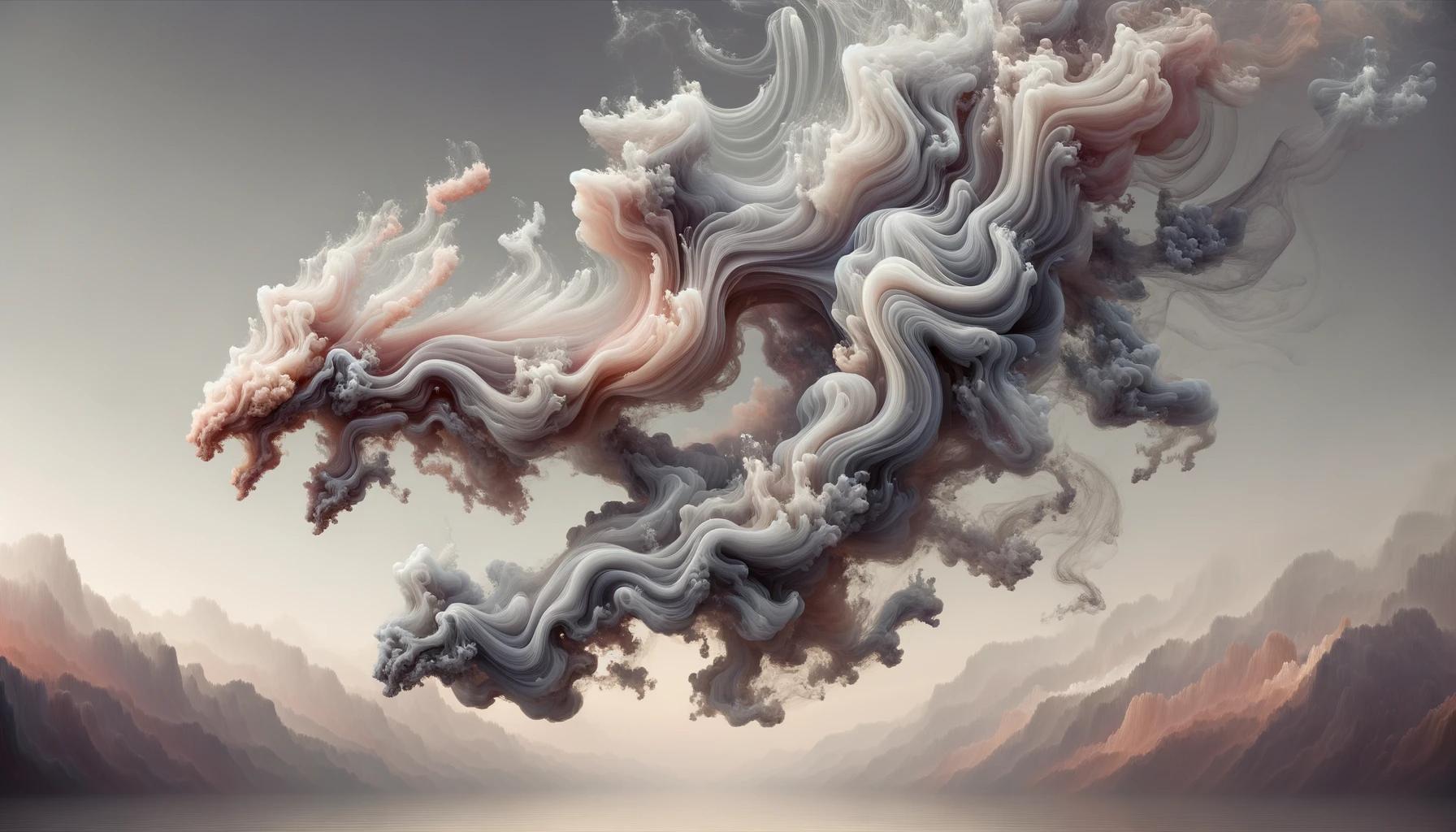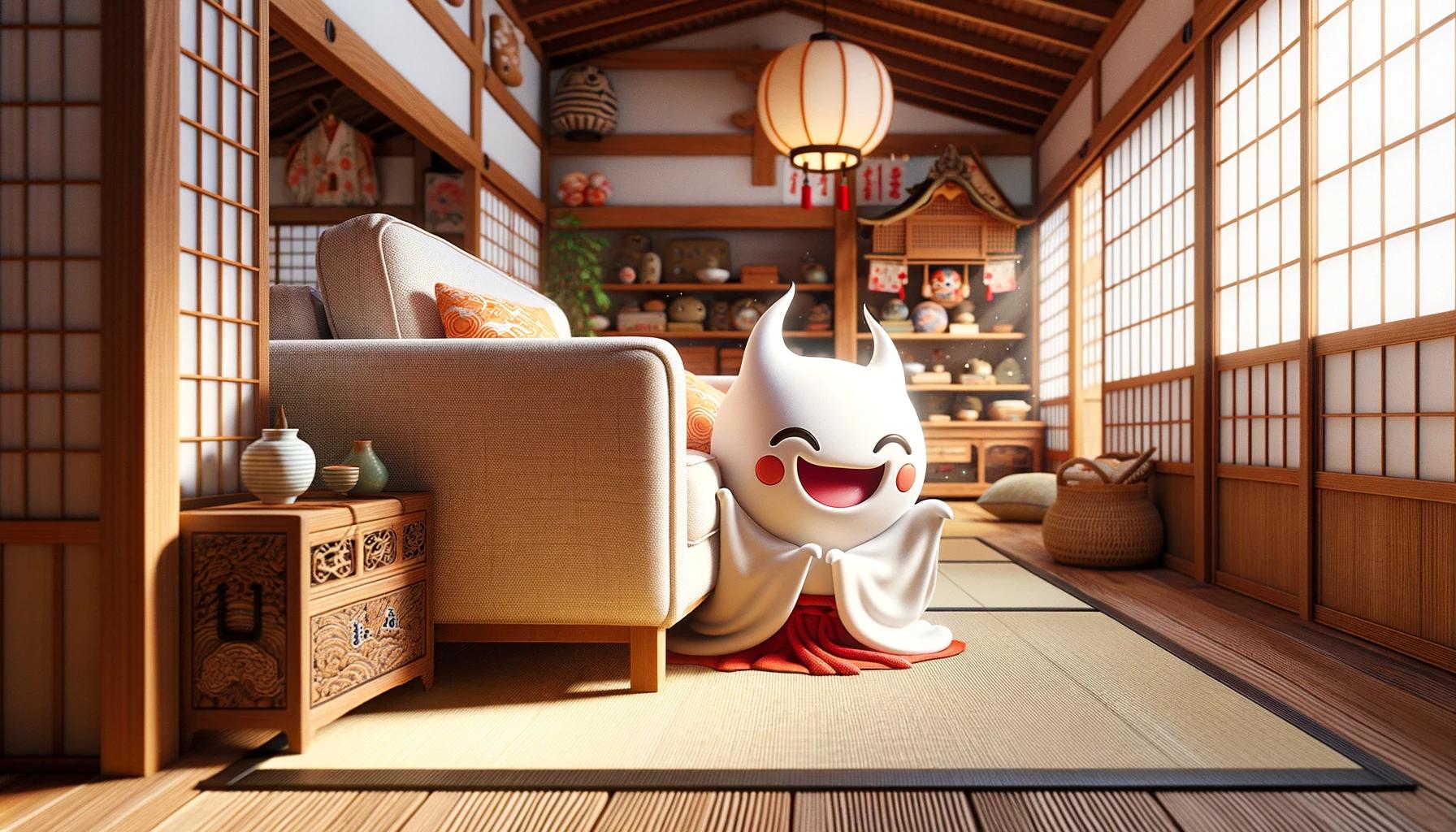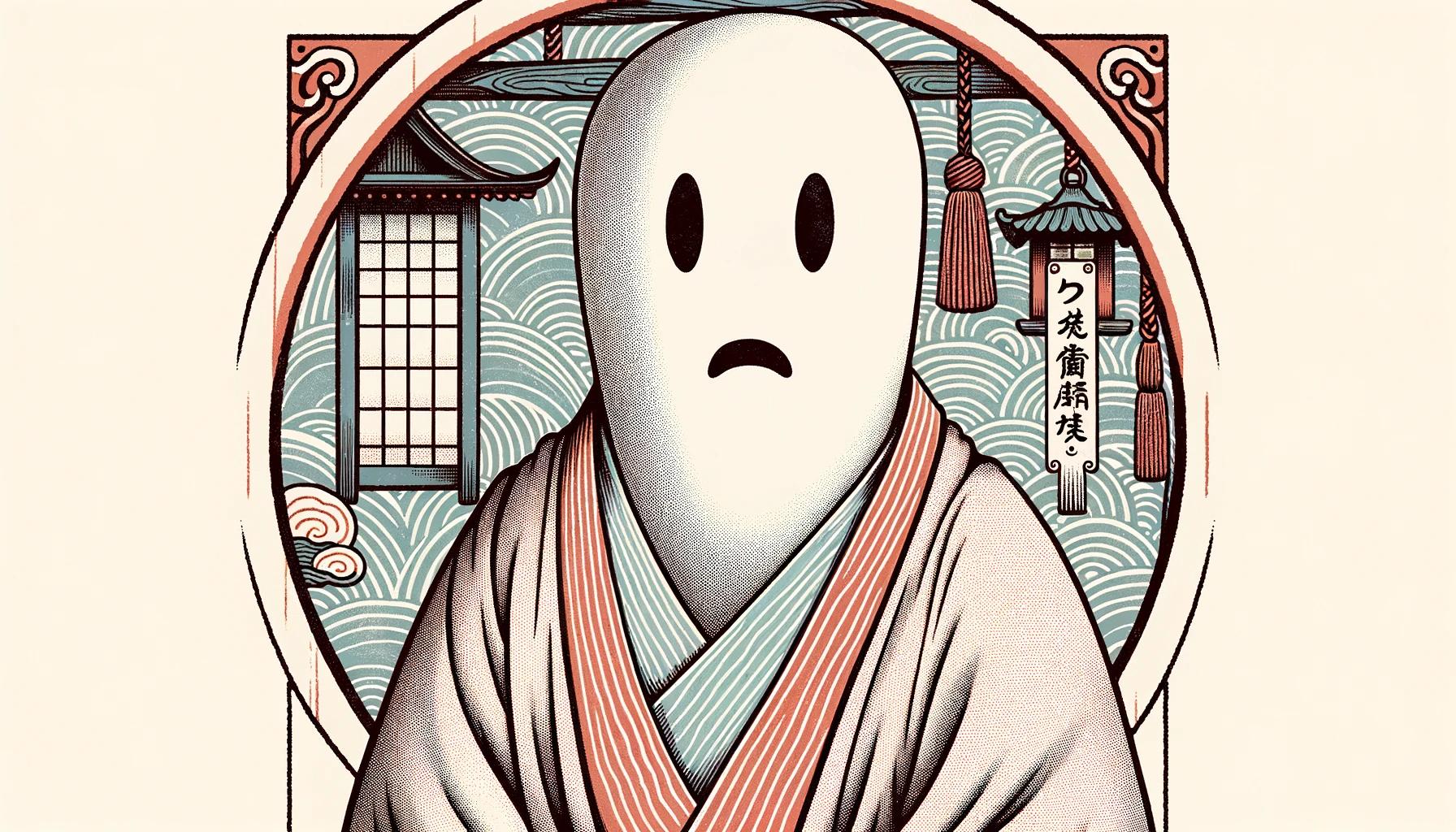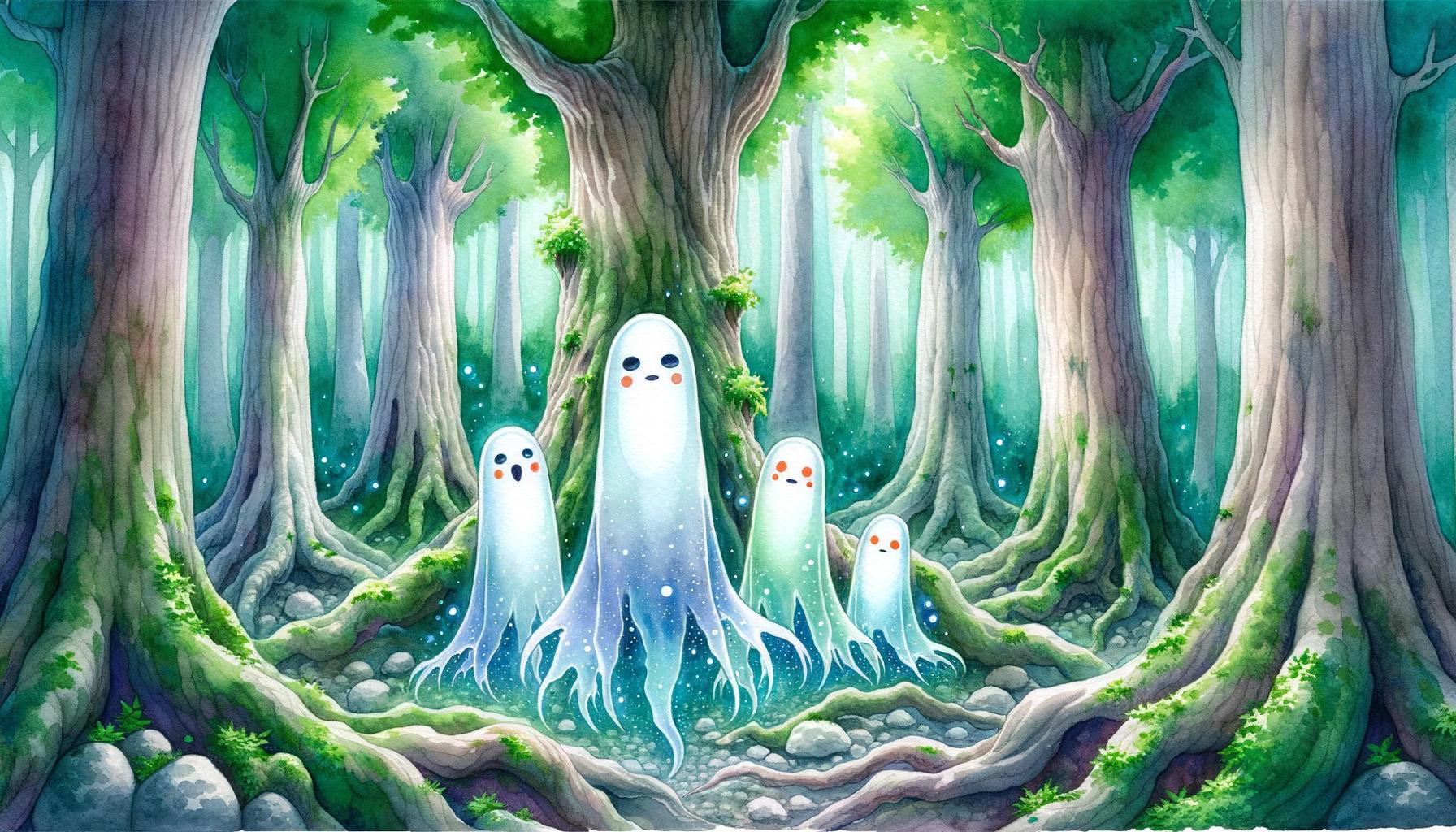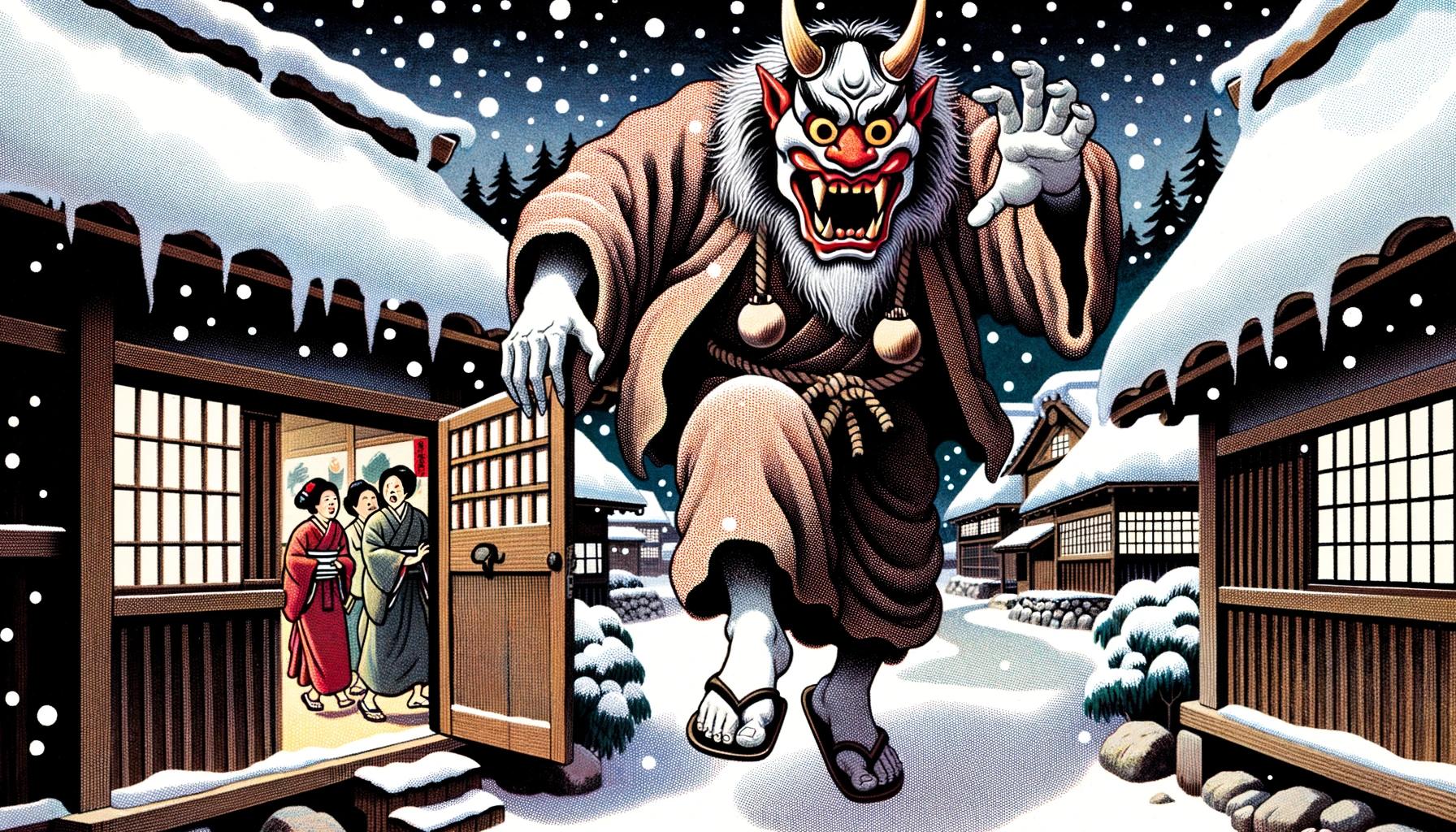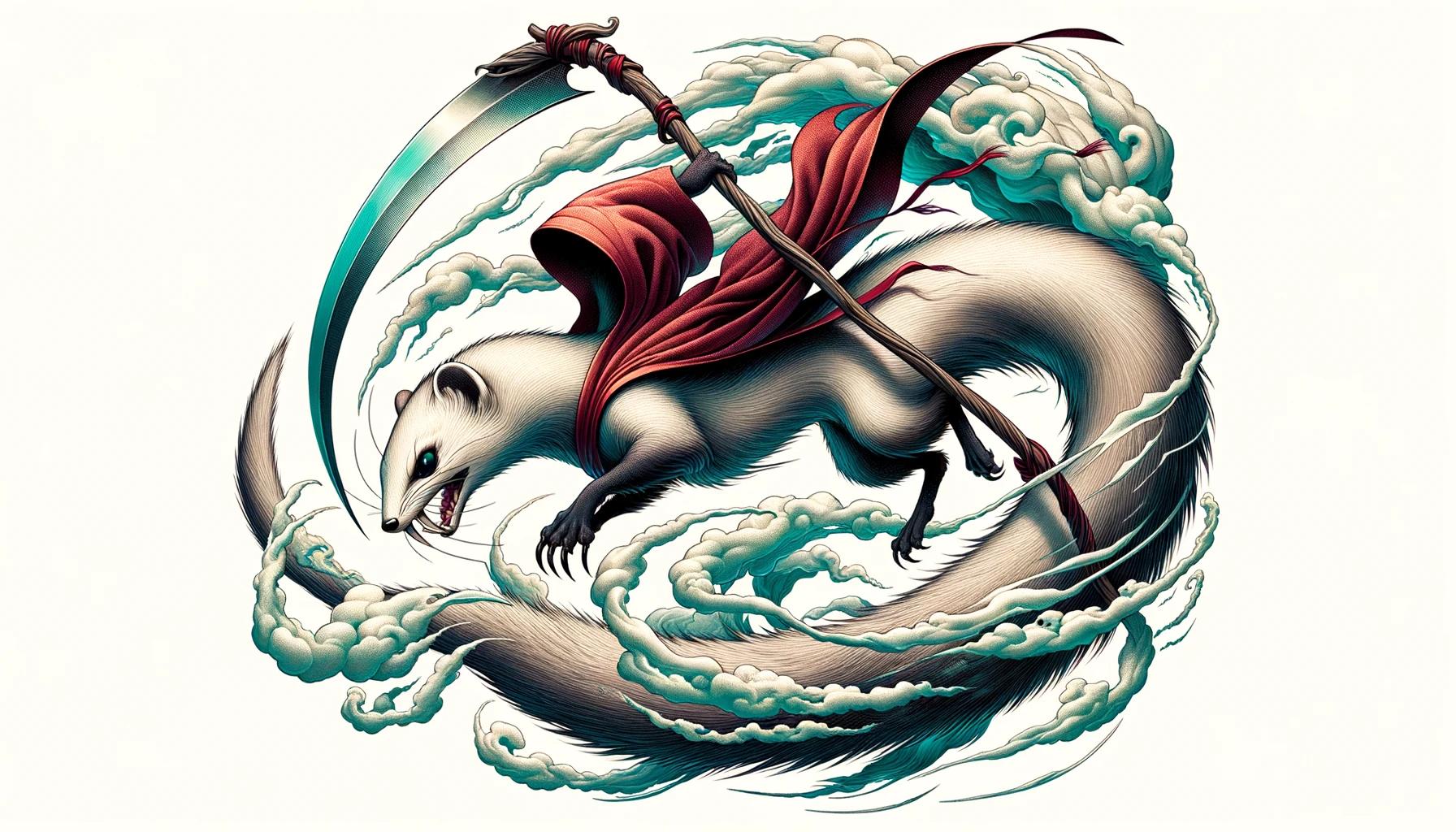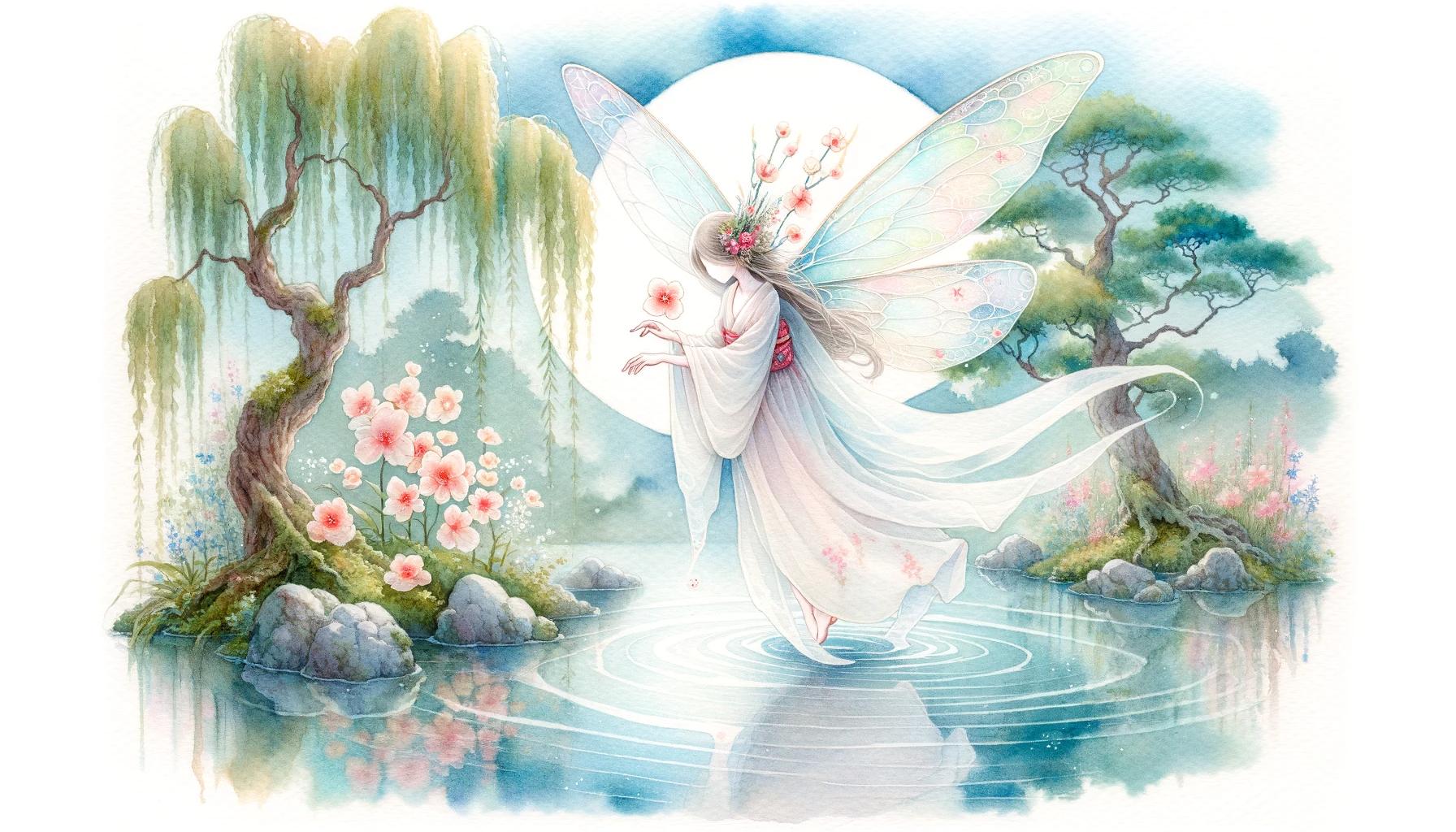Dorotabo Yokai: The Vengeful Spirits of Neglected Rice Fields in Japanese Mythology
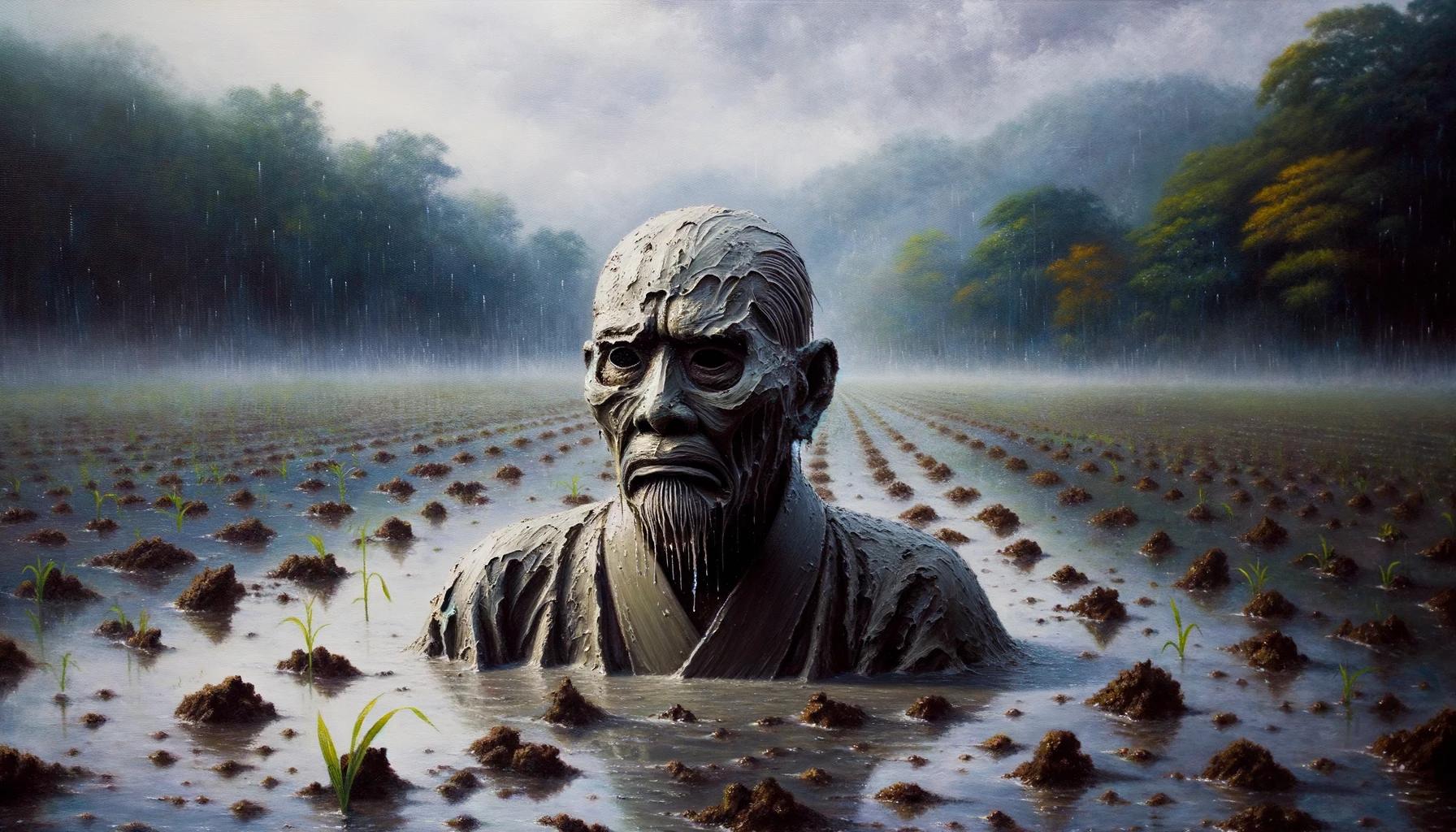
The Dorotabo Yokai, a vengeful spirit from Japanese mythology, is known for its eerie appearance resembling a decaying corpse covered in mud. It originates from the unhappy spirits of former rice field owners seeking revenge against those who neglected their fields.
This article provides insights into the origins, legends, and characteristics of the Dorotabo Yokai, along with the significance of rice fields in Japanese culture. Explore the haunting encounters and the lessons of valuing inherited lands that this yokai teaches.
Discover its presence in popular culture and media, and dive into thrilling discussions and theories surrounding it.
Understanding Dorotabo Yokai: Origins, Legends, and Myths
The concept of Yokai holds significant importance in Japanese folklore, encompassing a wide array of supernatural creatures. Within this rich mythological tapestry, the Dorotabo Yokai emerges as a mysterious and vengeful entity.
A closer examination of its origins reveals an enigmatic genesis, shrouded in tales passed down through generations.
The Concept of Yokai in Japanese Folklore
In Japanese folklore, Yokai are supernatural entities that inhabit the realm between the living and the spirit world. They are often depicted as mischievous, malevolent, or benevolent beings with diverse forms and abilities.
Yokai are deeply rooted in Japanese culture, their presence ingrained in myths, legends, and literature.
The Mysterious Origin of the Dorotabo Yokai
Amidst the diverse Yokai pantheon, the Dorotabo Yokai’s origins remain an enigma. Legends attribute its creation to the vengeful spirits of former rice field owners, driven by anguish and resentment.
These spirits are said to return, taking on the guise of a decaying, mud-covered corpse, seeking retribution for neglected fields.
Popular Legends Surrounding the Dorotabo Yokai
Throughout Japanese folklore, various captivating tales revolve around encounters with the Dorotabo Yokai. These stories depict its haunting presence in abandoned rice fields, where its mournful cries echo through the night.
These legends emphasize the importance of respecting the land and serve as cautionary tales against neglect and greed.
The Dorotabo Yokai’s Appearance and Characteristics
The Dorotabo Yokai is depicted as a malodorous and muddy entity that closely resembles a decaying corpse. Its appearance is often repugnant, with a strong odor emanating from its rotting form.
This eerie yokai stands as a haunting reminder of the consequences of neglecting the sacred rice fields.
Visual Depiction: A Malodorous and Muddy Corpse-Like Entity
When encountering the Dorotabo Yokai, witnesses are struck by its unsettling appearance. Covered in mud and filth, it bears a stark resemblance to a decaying cadaver. The stench that surrounds the Dorotabo Yokai adds to the atmosphere of dread, instilling fear in those who cross its path.
Symbolism of the Dorotabo Yokai’s Features
The physical attributes of the Dorotabo Yokai hold symbolic significance, representing the vices that led to the degradation of the rice fields. With its single eye and three fingers on each hand, it symbolizes the vices of anger, greed, and ignorance.
These traits serve as a stark reminder of the negative consequences of negligence and the dishonor brought upon the hard work of the elder farmers.
As the Dorotabo Yokai prowls the abandoned rice fields, it seeks to reclaim what is rightfully its own, demanding respect and redemption for the land that was left in ruins.
Its appearance and symbolism serve as a cautionary tale, emphasizing the importance of valuing and caring for our inherited legacies.
The Role of Rice Fields in Japanese Culture
Rice fields hold immense significance in Japanese culture, representing not only a key source of sustenance but also a symbol of hard work, tradition, and community. They play a vital role in shaping the social fabric and economic stability of rural areas in Japan.
Significance of Rice Fields in Japan
Rice cultivation has been an integral part of Japanese identity for centuries, shaping both the economy and cultural practices. Rice, known as the staple food of Japan, forms the foundation of numerous traditional dishes and rituals.
The cultivation and harvest of rice are celebrated in festivals like ‘Otaue Matsuri’ and ‘Shinto Rice Cultivation Ceremonies,’ which demonstrate the deep-rooted connection between people and their rice fields.
The Struggles and Importance of Agricultural Work
Agricultural work, particularly rice farming, has always been demanding and labor-intensive in Japan.
Farmers face a myriad of challenges, such as unpredictable weather, pests, and economic pressures. Despite these difficulties, the commitment to preserving and cultivating rice fields persists. It serves as a testament to the resilience and dedication of Japanese farmers, who understand the vital role they play in sustaining their communities and preserving their cultural heritage.
In addition to providing sustenance, rice fields also contribute to environmental sustainability, acting as natural water purifiers and supporting diverse ecosystems. They promote a sense of harmony between humans and nature, reflecting the deeply ingrained respect for the environment in Japanese culture.
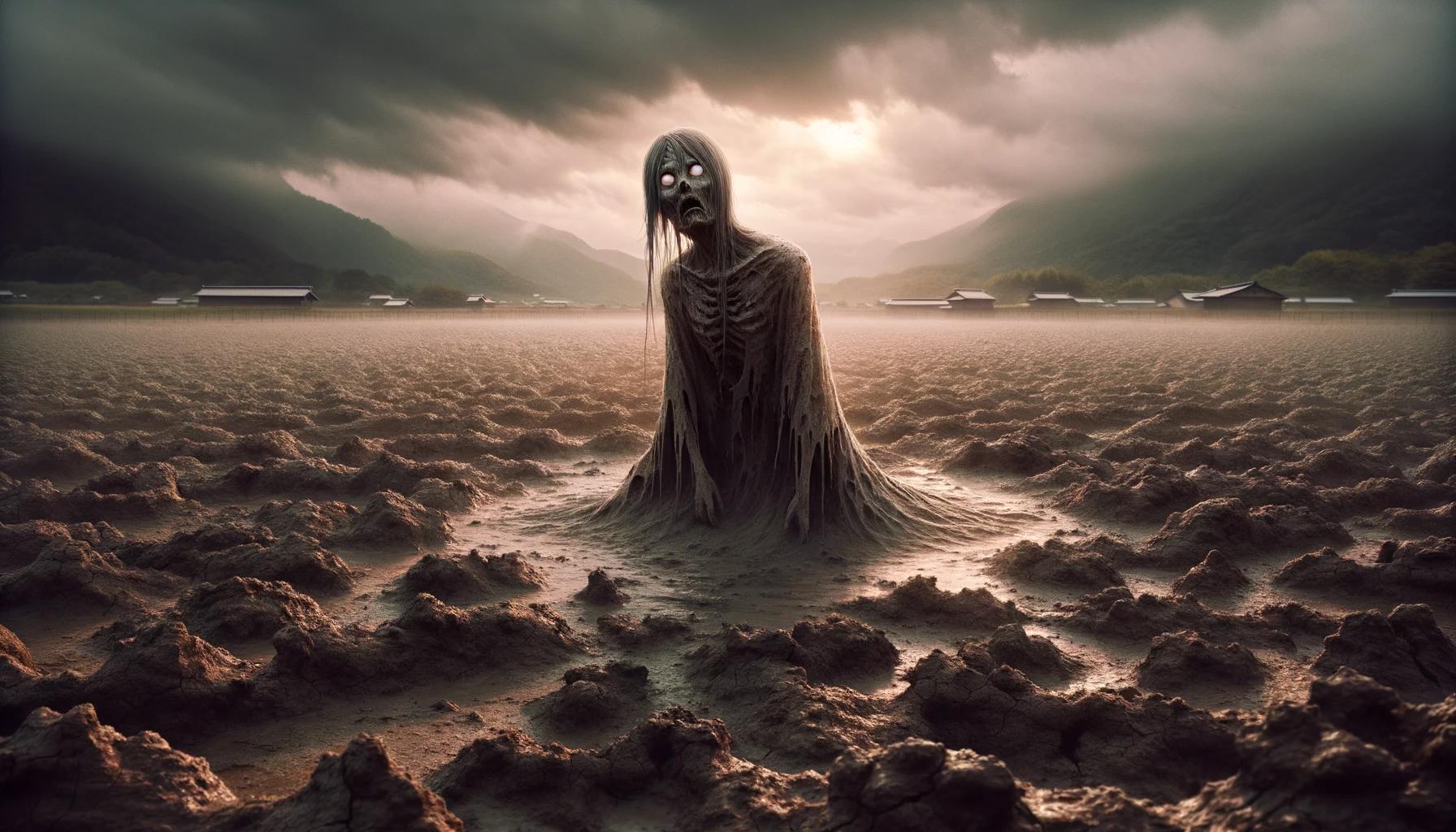
- Rice fields symbolize the essence of Japanese cuisine and cultural traditions.
- They showcase the resilience and dedication of farmers in the face of challenges.
- Rice fields contribute to environmental sustainability and foster a symbiotic relationship with nature.
Unveiling the Vengeance of the Dorotabo Yokai
Discover the deep-rooted wrath of the Dorotabo Yokai as we delve into the factors that trigger their revenge.
This section explores the impact of negligence and ignorance on the incitement of this supernatural entity’s fury, shedding light on the consequences of abandoning the sacred rice fields cultivated by generations past.
How Negligence and Ignorance Lead to Yokai’s Wrath
The Dorotabo Yokai’s wrath is awakened by the neglect and disregard shown towards the valuable rice fields. These spirits originate from the tormented souls of ancient rice field owners, seeking vengeance against those who have left their lands in ruins due to negligence or ignorance.
Their anger simmers beneath the surface, fueled by the negligence of the present generation.
As caretakers of the land, it is our responsibility to tend to these precious fields, acknowledging and respecting the hard work and sacrifices of our ancestors.
Ignoring or mistreating the rice fields not only dishonors their memory but also stirs the fury of the Dorotabo Yokai, unleashing their haunting presence upon the negligent.
Elders’ Fondness for Their Harvested Lands
The Dorotabo Yokai’s vengeful nature originates from the deep emotional connection of elders towards their hard-earned rice fields.
Cultivating the land was not just a means of sustenance for them; it was a lifelong dedication, filled with hopes and dreams for future generations.
Older farmers hold a profound attachment to the lands they labored over, pouring their sweat and spirit into every grain of rice.
The Dorotabo Yokai’s appearance, with its symbolic features representing the vices that degrade the fields, stands as a reminder of the elders’ anguish and disappointment when witnessing the deterioration caused by negligence and indifference.
By valuing and preserving these inherited rice fields, we honor the toil of our ancestors and ensure a prosperous future for generations to come.
Dorotabo Yokai Encounters and Hauntings
When it comes to the Dorotabo Yokai, there are numerous tales that revolve around their wandering presence in abandoned rice fields. These eerie stories have been passed down through generations, often leaving people with a sense of unease and fascination.
Tales of Dorotabo Yokai Wandering Abandoned Rice Fields
- One local legend speaks of a small village situated near a neglected rice field. As night falls, villagers claim to hear faint cries and whispers coming from the abandoned field.
Some even claim to have witnessed a shadowy figure resembling the Dorotabo Yokai.
- In another account, a curious traveler happened upon a desolate rice field during a stormy night. As the rain poured down, the traveler experienced an overwhelming feeling of being watched.
In the eerie silence, footsteps were heard, seemingly getting closer with each passing moment.
- There have also been reports of villagers awakening to find muddy footprints leading from the rice fields to their homes, as if the Dorotabo Yokai had paid them a visit during the night.
Disturbing Claims: Disruptions and Sleepless Nights
- Those who have had encounters with the Dorotabo Yokai often describe strange disruptions in their lives.
Crops fail, tools and farming equipment mysteriously disappear, and an overwhelming sense of dread infiltrates their daily routines.
- Disturbed sleep is another common complaint among individuals living near abandoned rice fields.
Many report hearing plaintive cries or feeling an otherworldly presence at night, preventing them from getting a peaceful night’s rest.
- Some claim to have experienced vivid nightmares featuring the Dorotabo Yokai, awakening with a deep sense of fear and foreboding.
These encounters and hauntings serve as a reminder of the Dorotabo Yokai’s vengeful nature and the consequences of neglecting the once cherished rice fields.
The stories surrounding these encounters continue to captivate and intrigue, reinforcing the importance of respecting and valuing the hard work of the farmers who came before us.
Seeking Redemption: The Dorotabo Yokai’s Message
The Dorotabo Yokai’s haunting presence serves as a reminder of the consequences that arise from neglect and greed.
This section delves into the profound reflections provoked by encounters with the vengeful spirit and the lessons it imparts about valuing the inherited rice fields.
Reflections on the Consequences of Neglect and Greed
Encounters with the Dorotabo Yokai force individuals to confront the repercussions of neglecting their duties and succumbing to the allure of greed.
The spirit’s relentless pursuit of redemption highlights the destructive power of ignorance and negligence in safeguarding precious resources.
Such encounters prompt deep self-reflection, as individuals consider the impact of their actions on the well-being of their families, communities, and future generations.
The Dorotabo Yokai acts as a sobering reminder that neglecting responsibilities can lead to the decay and loss of cherished legacies.
Lessons of Valuing the Inherited Rice Fields
The Dorotabo Yokai’s message goes beyond condemnation. It urges individuals to recognize the value of their inherited rice fields and the diligent work of their ancestors. By cherishing and nurturing these lands, one honors the labor and sacrifices made by previous generations.
The spirit’s quest for redemption teaches the importance of responsible stewardship, ensuring the preservation and sustainable use of natural resources. It emphasizes the need for a deep connection to the land, fostering a sense of pride and gratitude for the bountiful gifts it bestows.
- Recognize the significance of inherited rice fields and the labor invested in them.
- Embrace responsibility and avoid succumbing to neglect or greed.
- Nurture and protect the land to sustain its productivity and pass it on to future generations.
- Foster a sense of pride, gratitude, and connection to the environment.
By internalizing the Dorotabo Yokai’s message, individuals can cultivate a deep respect for the land and contribute to the longevity of their cherished rice fields.
Dorotabo Yokai in Popular Culture and Media
The Dorotabo Yokai has experienced a resurgence of interest in modern entertainment, with its eerie presence captivating audiences worldwide. The mythical creature’s unique characteristics and vengeful nature have inspired various forms of media, including comics, anime, and movies.
The Resurgence of Yokai in Modern Entertainment
In recent years, there has been a growing fascination with Japanese folklore and yokai creatures among fans of horror and supernatural genres. This interest has led to an increased portrayal of yokai, including the Dorotabo Yokai, in movies, TV shows, and video games.
The resurgence of yokai in modern entertainment can be attributed to their intriguing mythology and the desire to explore different cultural beliefs. Filmmakers and creators are drawn to the dark and mysterious allure of the Dorotabo Yokai, incorporating its haunting presence into captivating storylines.
Exploring Dorotabo Yokai’s Representation in Comics and Anime
Comics and anime have been powerful mediums for showcasing the Dorotabo Yokai’s chilling existence. Creators and artists have depicted the yokai’s malodorous appearance, emphasizing its mud-covered corpse-like figure and single eye.
- Comics: Several manga series delve into the world of yokai, often featuring the Dorotabo Yokai as a formidable antagonist. These narratives explore the creature’s origin, its interactions with humans, and the consequences of neglecting the precious rice fields.
- Anime: Numerous anime series have brought the Dorotabo Yokai to life, captivating viewers with its terrifying presence and its relentless pursuit of vengeance.
These on-screen adaptations often highlight the emotional impact of the creature’s curse on both the protagonists and the abandoned rice fields.
Through comics and anime, enthusiasts can immerse themselves in captivating stories that delve into the rich mythology and symbolism behind the Dorotabo Yokai, providing a unique and compelling viewing experience.
Fan Feed: Discussions and Shared Experiences
Welcome to the Fan Feed section, where enthusiasts of the Dorotabo Yokai come together to share their captivating encounters and theories about its origins. Join the lively discussions about this vengeful spirit and gain unique perspectives from fellow fans who have delved into the world of yokai folklore.
Fascinating Accounts of Dorotabo Yokai Encounters
- Haunting Encounters: Users recount spine-chilling experiences with the Dorotabo Yokai in abandoned rice fields, sharing intricate details of its eerie presence and relentless pursuit for vengeance.
- Unexplained Phenomena: Delve into mysterious occurrences surrounding the Dorotabo Yokai, where witnesses discuss strange sounds, inexplicable movements, and the menacing aura felt in its presence.
- Supernatural Encounters: Read thrilling stories shared by those who claim to have witnessed the Dorotabo Yokai’s restless spirit roaming the night, leaving a trail of fear and unrest in its wake.
Interpretations and Theories on the Dorotabo Yokai’s Origins
- Cultural Significance: Explore the cultural and historical context behind the Dorotabo Yokai, with users debating the folklore roots and possible influences that shaped its unique existence.
- Historical Research: Dive into scholarly research and personal investigations as enthusiasts unravel the hidden truths regarding the origins and evolution of this enigmatic yokai.
- Speculations and Folklore Connections: Engage in thought-provoking discussions as individuals propose theories connecting the Dorotabo Yokai to other mythical creatures and supernatural beings in Japanese folklore.
Immerse yourself in the Fan Feed community, where curiosity and passion converge, as we continue to unravel the mysteries and legends surrounding the Dorotabo Yokai.
.











